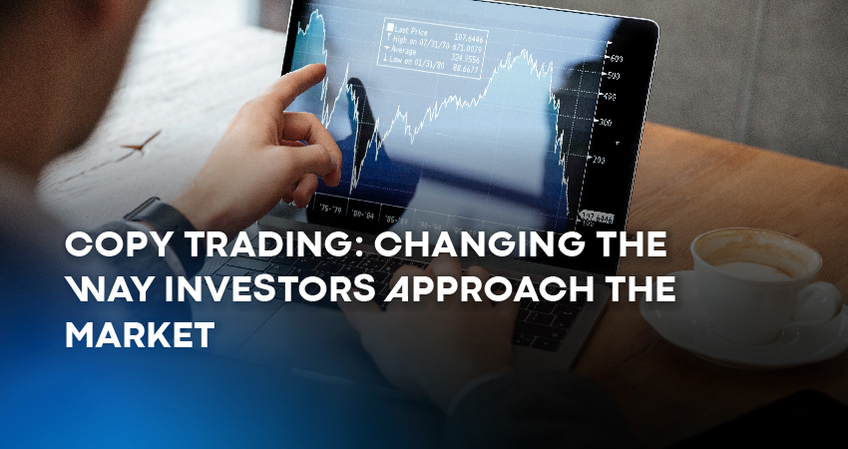Copy Trading: Changing the Way Investors Approach the Market
Copy trading is a practice in financial markets where an individual replicates the trades of another trader, known as the "signal provider," in real-time. It is a form of social trading that allows less experienced or time-constrained traders to benefit from the expertise and strategies of more experienced traders. By copying the trades of successful traders, individuals can potentially generate profits without having to conduct extensive market analysis or make independent trading decisions.
Copy trading platforms or systems enable investors to connect their trading accounts to those of signal providers. Once connected, the trades executed by the signal provider are automatically replicated in the investor's account, proportionally mirroring the positions, entry prices, and exit points. This allows the investor to participate in the same market opportunities as the signal provider, aiming to achieve similar profits.
The concept of copy trading is based on the idea that successful traders have valuable insights and strategies that can be emulated by others. It offers an opportunity for novice traders to learn from experienced professionals by observing their trading activities, risk management techniques, and decision-making processes. Additionally, it can be a time-saving approach for individuals who are unable to actively monitor the markets but still want to engage in trading.
How to Select a Signal Provider
The process of selecting a signal provider in copy trading involves careful evaluation and consideration of various factors. Here are the key steps typically involved:
- 1) Research and Review: Start by researching different copy trading platforms or systems that offer a range of signal providers. Look for reputable and well-established platforms that have a track record of providing reliable services.
- 2) Performance Analysis: Evaluate the performance of signal providers by examining their historical trading results. Look for consistent profitability, risk management practices, and the duration of their trading track record. Analyze factors such as the win rate, average profit/loss per trade, and maximum drawdown.
- 3) Risk Management: Assess the signal provider's risk management approach. Consider factors such as their risk-reward ratio, position sizing techniques, and how they handle potential drawdowns. Look for providers who prioritize risk management and have strategies in place to protect capital.
- 4) Trading Style and Strategy: Understand the signal provider's trading style and strategy. Determine if their approach aligns with your own trading preferences and risk tolerance. Some signal providers may specialize in specific markets, timeframes, or trading techniques, so consider whether their style matches your investment goals.
- 5) Communication and Transparency: Evaluate the level of communication and transparency provided by the signal provider. Look for providers who offer regular updates, market insights, and explanations of their trading decisions. Transparency in terms of open positions, trade history, and performance statistics is crucial for building trust.
- 6) Subscriber Feedback: Seek feedback from other subscribers or users of the platform who have followed the signal provider. User reviews, ratings, and testimonials can provide insights into the overall satisfaction and experiences of others.
- 7) Trial Period or Demo Account: Some platforms offer a trial period or a demo account feature that allows you to test the signal provider's services before committing real funds. Utilize this opportunity to observe the trades and assess their performance firsthand.
- 8) Risk Disclosure and Legal Considerations: Ensure that the copy trading platform provides clear risk disclosure and legal documentation. Understand the terms and conditions, fees, and any contractual obligations associated with copying trades from the selected provider.
Things to Consider
However, it's important to note that copy trading also carries certain risks. While copying successful trades can lead to profits, it does not guarantee consistent success. Market conditions can change rapidly, and past performance is not indicative of future results. Additionally, the reliance on a single signal provider exposes the investor to the potential risks and mistakes of that individual. Therefore, it is essential to carefully select signal providers based on their track record, risk management practices, and compatibility with the investor's own trading objectives and risk tolerance.

